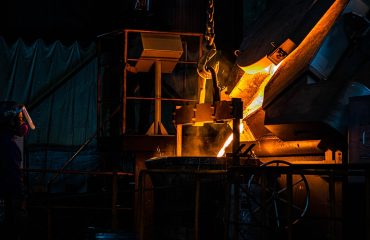The steel industry, a cornerstone of global infrastructure and manufacturing, is undergoing a significant transformation. One area experiencing rapid innovation is steel quoting. Traditionally a time-consuming and error-prone process, steel quoting is now being revolutionized by the integration of Artificial Intelligence (AI). AI-assisted steel quoting tools are streamlining operations, improving accuracy, and boosting profitability for businesses of all sizes. This post delves into the specifics of this exciting development.
1. The Challenges of Traditional Steel Quoting
Before the advent of AI, steel quoting was a complex and laborious task. It involved manually gathering data from multiple sources, including: steel mills’ price lists (which are often inconsistent and change frequently), transportation costs (influenced by fuel prices and distances), processing fees, and various other associated charges. This manual process was prone to human error, leading to inaccurate quotes and potentially lost business. Moreover, the time spent on quoting often diverted resources from other crucial business functions, hindering overall efficiency and profitability. The sheer volume of data required for accurate quoting also presented a significant challenge, making it difficult for businesses to keep up with market fluctuations and maintain a competitive edge.
2. How AI Streamlines the Steel Quoting Process
AI-assisted steel quoting tools address these challenges head-on. These tools leverage machine learning algorithms to automate various aspects of the quoting process. They can access and process vast amounts of data from diverse sources in real-time, including live market prices, inventory levels, transportation data, and even historical sales data. This automated data aggregation significantly reduces the risk of human error and ensures that quotes are based on the most up-to-date information. Furthermore, AI algorithms can identify patterns and trends in the data, enabling more accurate price predictions and helping businesses optimize their pricing strategies.
3. Key Features of AI-Assisted Steel Quoting Tools
Modern AI-powered steel quoting tools offer a range of features designed to enhance efficiency and accuracy. These typically include:
- Real-time Price Updates: Automatic updates from various steel mills and market data providers.
- Automated Calculations: Instantaneous calculation of total cost, including material, processing, and transportation expenses.
- Customizable Templates: Pre-designed templates for different types of steel products and customer segments.
- Inventory Management Integration: Real-time tracking of inventory levels to ensure accurate availability information.
- Predictive Analytics: Forecasting future steel prices and demand to aid in strategic decision-making.
- CRM Integration: Seamless integration with customer relationship management systems for improved customer service.
- Reporting and Analytics Dashboards: Detailed reports and visualizations to track quoting performance and identify areas for improvement.
4. Benefits of Implementing AI-Assisted Steel Quoting Tools
The adoption of AI-assisted steel quoting tools offers numerous benefits for businesses in the steel industry. These include:
- Increased Efficiency: Automation significantly reduces the time and effort required for quoting, freeing up valuable resources.
- Improved Accuracy: Minimizes human error, leading to more accurate and reliable quotes.
- Enhanced Profitability: Optimized pricing strategies and reduced operational costs contribute to higher profit margins.
- Better Customer Service: Faster quote turnaround times and improved accuracy enhance customer satisfaction.
- Competitive Advantage: Provides a competitive edge by enabling quicker and more accurate responses to customer inquiries.
- Data-Driven Decision Making: Access to comprehensive data and analytics facilitates informed business decisions.
5. The Future of AI in Steel Quoting
The integration of AI in steel quoting is still in its relatively early stages, but the potential for future advancements is immense. We can expect to see even more sophisticated tools emerge, incorporating features such as:
- Advanced Predictive Modeling: More accurate forecasting of steel prices and demand, considering a wider range of factors.
- Increased Automation: Further automation of tasks, such as contract generation and order processing.
- Integration with Supply Chain Management: Seamless integration with broader supply chain systems for end-to-end optimization.
- Blockchain Technology Integration: Enhanced transparency and security in transactions.
- Personalized Quoting: Tailored quotes based on individual customer preferences and needs.
As AI technology continues to evolve, we can anticipate even more transformative changes in the steel quoting process, leading to greater efficiency, accuracy, and profitability for businesses across the industry.
Tags: AI steel quoting, steel quoting software, AI in steel industry, automated steel quotes, steel price prediction




